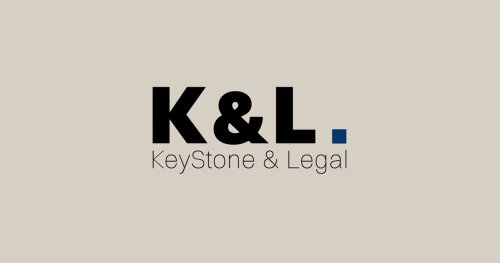Best Communications & Media Law Lawyers in South Korea
Share your needs with us, get contacted by law firms.
Free. Takes 2 min.
Or refine your search by selecting a city:
List of the best lawyers in South Korea
About Communications & Media Law in South Korea:
Communications & Media Law in South Korea governs the regulations, rights, and responsibilities related to communication, broadcasting, journalism, and digital media in the country. These laws aim to protect freedom of speech while ensuring ethical standards are maintained within the media industry.
Why You May Need a Lawyer:
You may need a lawyer specializing in Communications & Media Law in South Korea if you are dealing with issues such as defamation, privacy rights, intellectual property disputes, licensing agreements, or regulatory compliance in the media industry. A lawyer can help you navigate complex legal matters and protect your rights.
Local Laws Overview:
Key aspects of Communications & Media Law in South Korea include the Broadcasting Act, Press Arbitration Act, Telecommunications Business Act, and Personal Information Protection Act. These laws regulate broadcasting content, media ownership, privacy rights, and data protection in the country. It is essential to comply with these regulations to avoid legal consequences.
Frequently Asked Questions:
1. What is considered defamation in South Korea?
In South Korea, defamation is a criminal offense that involves making false statements about someone that damage their reputation. It can result in criminal charges and civil liability. It is essential to be cautious about what you say or publish to avoid defamation claims.
2. How are privacy rights protected in South Korea?
Privacy rights in South Korea are protected under the Personal Information Protection Act. This law regulates the collection, use, and disclosure of personal information by businesses and organizations. Individuals have the right to control their personal data and can take legal action if their privacy rights are violated.
3. Can I use copyrighted material in my media content?
You must obtain permission from the copyright holder to use copyrighted material in your media content in South Korea. Violating copyright laws can result in legal action, including fines and injunctions. It is essential to respect intellectual property rights and seek proper authorization before using copyrighted material.
4. What is the regulatory framework for broadcasting in South Korea?
The Broadcasting Act governs broadcasting content, licensing, and regulations in South Korea. The Korean Communications Commission (KCC) is responsible for overseeing the broadcasting industry and ensuring compliance with regulatory requirements. Broadcasters must adhere to content standards and licensing conditions set by the KCC.
5. What are the penalties for violating Communications & Media Laws in South Korea?
Penalties for violating Communications & Media Laws in South Korea can vary depending on the specific offense. Violations such as defamation, copyright infringement, or privacy breaches can result in fines, criminal charges, and civil lawsuits. It is essential to comply with the law to avoid legal consequences.
6. How can I protect my intellectual property rights in South Korea?
You can protect your intellectual property rights in South Korea by registering your trademarks, copyrights, and patents with the Korean Intellectual Property Office (KIPO). Enforcing your intellectual property rights can involve legal action against infringers to prevent unauthorized use of your intellectual property.
7. What are the limitations on freedom of speech in South Korea?
Freedom of speech in South Korea is protected under the Constitution, but there are limitations on speech that incites violence, promotes discrimination, or violates public order. Hate speech, defamation, and false information can be restricted under South Korean law. It is essential to exercise freedom of speech responsibly.
8. How can I file a complaint about media content in South Korea?
You can file a complaint about media content in South Korea with the Press Arbitration Commission. This independent body addresses complaints about inaccurate or unfair media coverage and can issue corrections or retractions. It is essential to follow the proper procedures for filing a complaint about media content.
9. Can foreigners own media outlets in South Korea?
Foreigners can own media outlets in South Korea, but there are restrictions on foreign investment in the broadcasting and publishing sectors. Foreign ownership of media companies is subject to government approval and regulations. It is essential to understand the legal requirements for foreign investment in the media industry.
10. What are the digital media regulations in South Korea?
Digital media regulations in South Korea are governed by laws such as the Act on Promotion of Information and Communications Network Utilization and Information Protection. These laws regulate online content, data protection, e-commerce, and cybersecurity. It is essential for digital media platforms to comply with these regulations to operate legally in South Korea.
Additional Resources:
For more information on Communications & Media Law in South Korea, you can refer to the Korean Communications Commission (KCC), Korea Copyright Commission, Korea Intellectual Property Office (KIPO), and Press Arbitration Commission. These governmental bodies and organizations provide valuable resources and guidance on legal issues related to communications and media.
Next Steps:
If you require legal assistance in Communications & Media Law in South Korea, it is advisable to consult with a qualified lawyer specializing in this field. A lawyer can provide expert advice, represent you in legal proceedings, and help you navigate complex legal matters effectively. Ensure to work with a reputable law firm with experience in Communications & Media Law to protect your rights and interests.
Lawzana helps you find the best lawyers and law firms in South Korea through a curated and pre-screened list of qualified legal professionals. Our platform offers rankings and detailed profiles of attorneys and law firms, allowing you to compare based on practice areas, including Communications & Media Law, experience, and client feedback.
Each profile includes a description of the firm's areas of practice, client reviews, team members and partners, year of establishment, spoken languages, office locations, contact information, social media presence, and any published articles or resources. Most firms on our platform speak English and are experienced in both local and international legal matters.
Get a quote from top-rated law firms in South Korea — quickly, securely, and without unnecessary hassle.
Disclaimer:
The information provided on this page is for general informational purposes only and does not constitute legal advice. While we strive to ensure the accuracy and relevance of the content, legal information may change over time, and interpretations of the law can vary. You should always consult with a qualified legal professional for advice specific to your situation.
We disclaim all liability for actions taken or not taken based on the content of this page. If you believe any information is incorrect or outdated, please contact us, and we will review and update it where appropriate.
Browse communications & media law law firms by city in South Korea
Refine your search by selecting a city.














